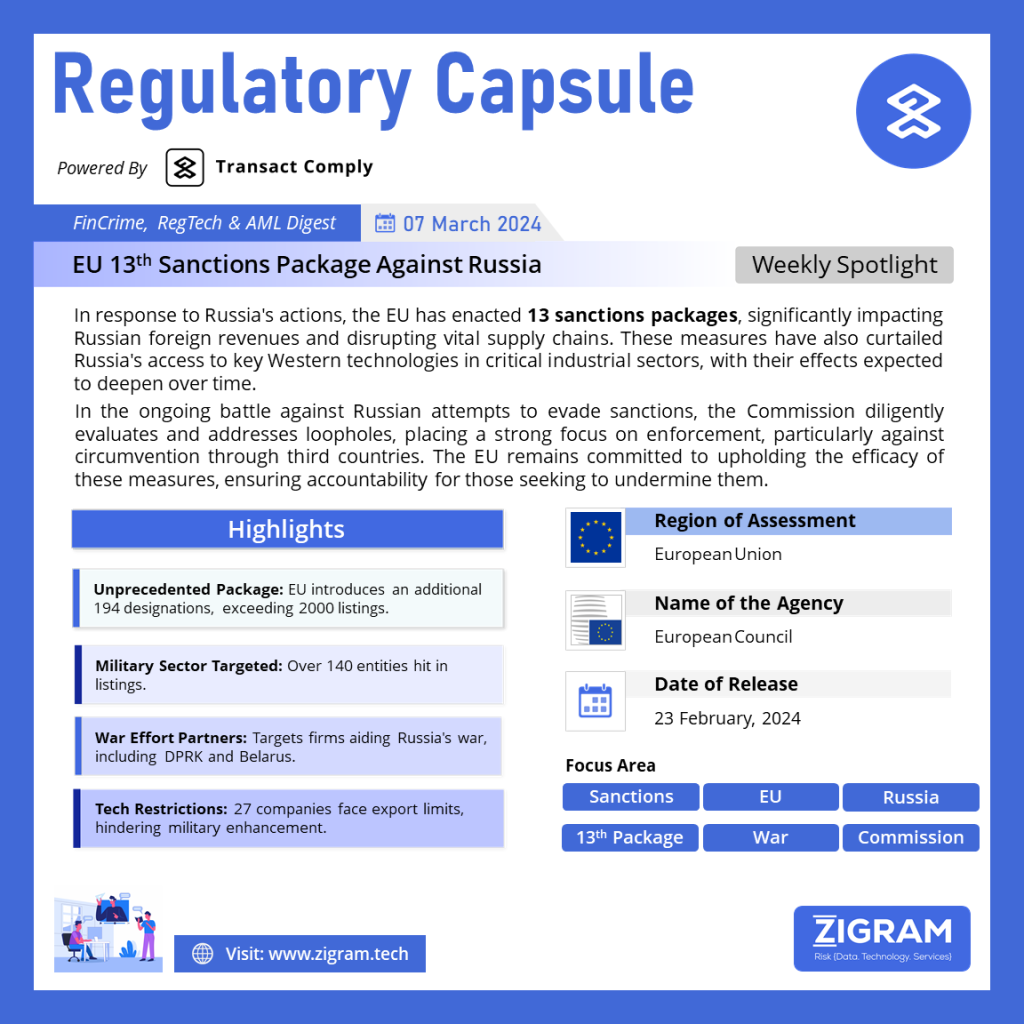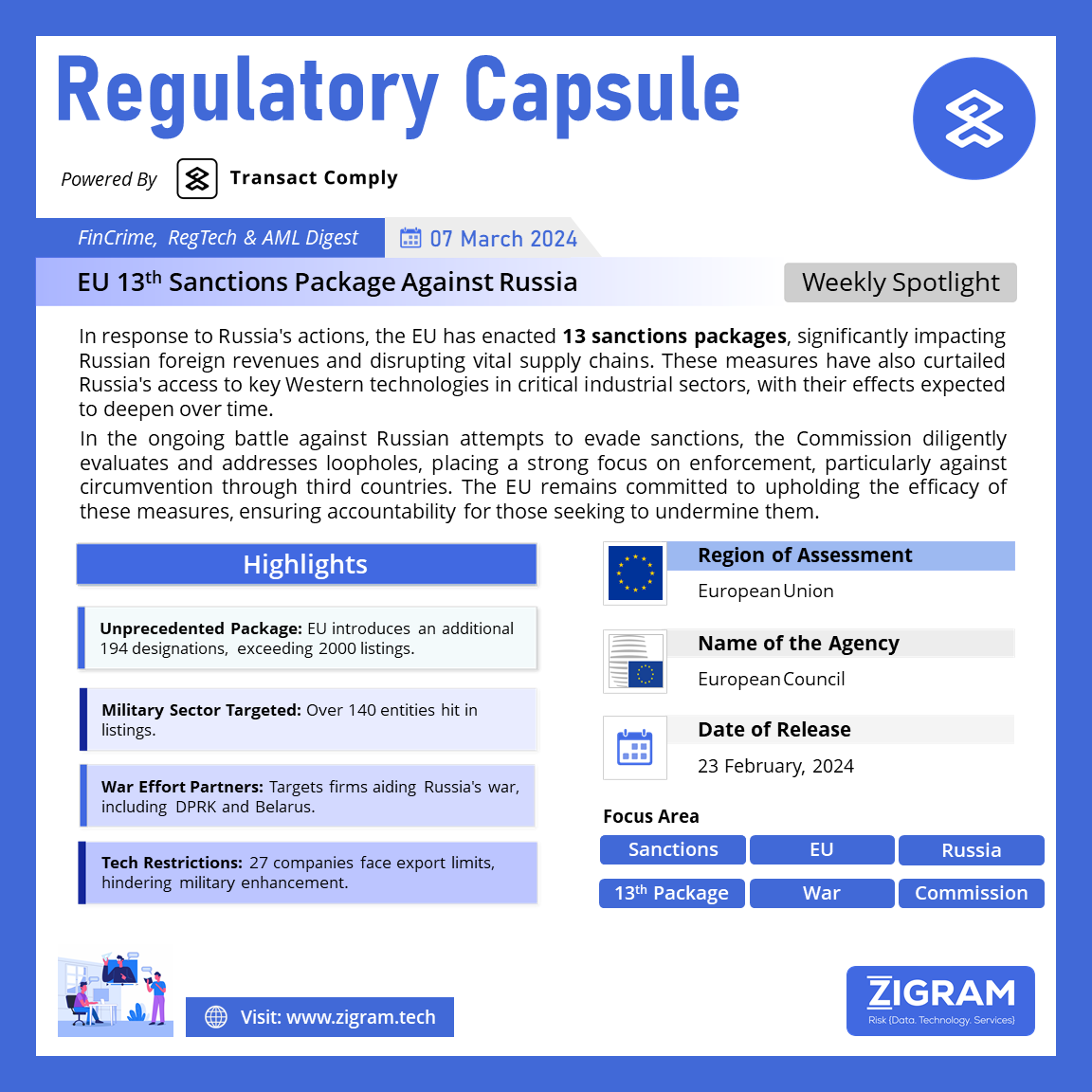Published Date:
Regulation Name: EU 13th Sanctions Package against Russia
Regulatory Update Date: 23 February 2024
Region: European Union
Agency: European Council
In the face of geopolitical challenges, the European Union (EU) has once again demonstrated its commitment to defending its values and principles with the introduction of the 13th sanctions package. Unveiled as an unprecedented measure, this package signifies the EU’s resolute stance against actions undermining peace and international order. Let’s delve into the key aspects that make the EU’s 13th sanctions package a robust and comprehensive response.
1. Unprecedented Designations:
With a staggering 194 individual designations, the EU has surpassed the significant threshold of 2000 listings. This remarkable scale emphasizes the gravity of the situation and the EU’s determination to address it comprehensively. Notably, the designations include 106 individuals and 88 entities, underscoring the multifaceted nature of the sanctions.
2. Targeting Russia’s Military and Defence Sector:
The core focus of the 13th sanctions package is on Russia’s military-industrial complex. Over 140 companies and individuals associated with this sector have been included in the listings. This encompasses entities involved in manufacturing missiles, drones, anti-aircraft missile systems, military vehicles, and high-tech components for weapons, signifying a strategic move to cripple Russia’s military capabilities.
3. Addressing Partners in Russia’s War Effort:
The package goes beyond direct military targets, sending a strong signal against entities collaborating with Russia’s war efforts. Specifically, 10 Russian companies and individuals involved in the shipment of armaments from the Democratic People’s Republic of Korea (DPRK) to Russia have been targeted. Additionally, the sanctions extend to the Defense Minister of the DPRK and several Belarusian entities supporting the Russian armed forces.
4. Trade Measures and Technological Restrictions:
To curb Russia’s access to sensitive Western technologies for military purposes, the EU’s 13th sanctions package includes stringent trade measures. Twenty-seven companies associated with Russia’s military-industrial complex now face export restrictions, particularly concerning dual-use goods and technology. This move aims to impede the technological enhancement of Russia’s defense and security sector, reinforcing the EU’s commitment to disarmament and stability.
The EU’s 13th sanctions package stands as a formidable response to the evolving geopolitical landscape, reflecting the union’s unwavering commitment to upholding its values. By targeting Russia’s military-industrial complex, addressing collaborators, and implementing trade measures, the EU sends a clear message: actions contrary to international norms will not go unchecked. As the geopolitical situation unfolds, the EU remains steadfast in its pursuit of a world order based on peace, cooperation, and respect for fundamental principles.
- #BankingRiskManagement
- #CSPReferrals
- #AML
- #TF
- #PF
- #FinancialSector
- #RegulatoryGuidance
- #RiskMitigation
- #Compliance
- #FATF
- #RiskAppetite
- #UBO
- #FinancialIntegrity
- #ABSGuidance


